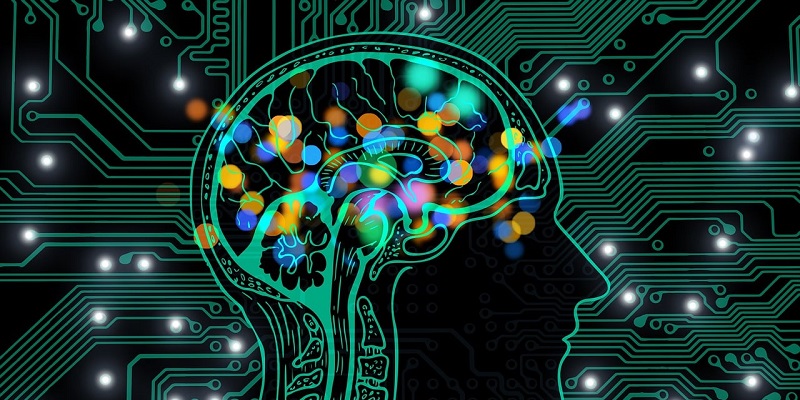In today’s digital age, the integration of artificial intelligence (AI) and machine learning (ML) algorithms has revolutionized the field of data science. These advanced technological tools are transforming data processing and analysis, ushering in a new era of predictive analytics and forecasting.
Delving deeper with AI and ML in data science
The integration of AI and ML in data science opens up exciting possibilities for delving deeper into data analysis. By leveraging these powerful algorithms, data scientists can extract valuable insights from vast amounts of complex information. Predictive analytics and forecasting become more accurate and reliable as AI-driven models learn from historical data patterns and identify trends.
Enhancing customer experience through AI-driven data science
One of the key areas where AI-driven data science is making a significant impact is in delivering personalized customer experiences. By harnessing the power of AI, businesses can better understand customer behavior and preferences. This enables them to tailor their products, services, and marketing strategies to meet individual needs, resulting in higher customer satisfaction and loyalty.
Streamlining Data Processing with AI and ML Technologies
Traditionally, data labeling and cleaning have been tedious and time-consuming tasks for data scientists. However, AI and ML technologies have revolutionized this process. AI-driven algorithms can now automate data labeling and cleaning, significantly reducing manual effort and eliminating human errors. This streamlines data processing, allowing data scientists to focus on more complex analysis and decision-making.
Extracting insights with NLP in Data Science
Natural Language Processing (NLP), a subfield of AI, plays a pivotal role in extracting valuable insights from unstructured text data. Through advanced NLP techniques, data scientists can analyze and understand sentiments, extract critical information, and detect patterns in large volumes of text data. This enables businesses to make informed decisions based on textual data, such as customer feedback, reviews, or social media interactions.
Revolutionizing healthcare with AI and ML
The healthcare industry stands at the forefront of benefiting from AI and ML advancements. Medical diagnostics have been transformed by AI-driven algorithms, enabling more accurate and timely diagnoses. Machine learning models can analyze vast amounts of patient data, identify patterns, and predict diseases, empowering healthcare professionals to make informed decisions and provide personalized treatments.
AI-Powered Data Science for Fraud Detection and Cybersecurity
In an increasingly digitized world, the threat of fraud and cyberattacks looms large. AI-powered data science is playing a critical role in combating these challenges. By analyzing vast amounts of data and detecting anomalous patterns, AI algorithms can identify potential threats, enabling quicker and more accurate fraud detection. Additionally, AI-driven cybersecurity measures, such as anomaly detection and behavioral analysis, help protect sensitive data from cyber threats.
Data Science and AI in the development of autonomous vehicles
The development of autonomous vehicles relies heavily on data science and AI. Machine learning algorithms are used to analyze data from sensors, cameras, and other sources to make real-time decisions for safe navigation. Data scientists play a crucial role in training these AI systems, enabling vehicles to adapt to varying road conditions and make informed decisions, ultimately leading to safer and more efficient transportation.
Addressing environmental challenges with AI and data science
Environmental challenges have become increasingly urgent, and AI and data science are indispensable tools in addressing them. These technologies can analyze large datasets to identify patterns, assess environmental impacts, and develop predictive models. AI-driven data science enables more accurate climate predictions, facilitates renewable energy optimization, and assists in wildlife conservation and biodiversity preservation.
AI-driven data science and accessibility/inclusivity
AI-driven data science has made significant strides in enhancing accessibility and inclusivity. Through advanced algorithms, AI systems can transform text into speech and speech into text, facilitating communication for individuals with hearing or speech impairments. Additionally, AI-powered image recognition technologies help visually impaired individuals navigate their surroundings independently. These inclusive applications of AI are opening up new opportunities for individuals with disabilities.
The integration of AI and ML algorithms has revolutionized data processing and analysis, enabling data scientists to delve deeper into predictive analytics and forecasting. AI-driven data science is at the core of delivering personalized customer experiences and streamlining tedious data labeling and cleaning tasks. With NLP, valuable insights can be extracted from unstructured text data. In healthcare, AI and ML are revolutionizing medical diagnostics, while AI-powered data science plays a critical role in fraud detection, cybersecurity, and the development of autonomous vehicles. Moreover, AI and data science are indispensable tools for addressing environmental challenges and promoting accessibility and inclusivity. As these technologies continue to advance, the potential for AI-driven data science is boundless, paving the way for a more data-driven and intelligent future.

